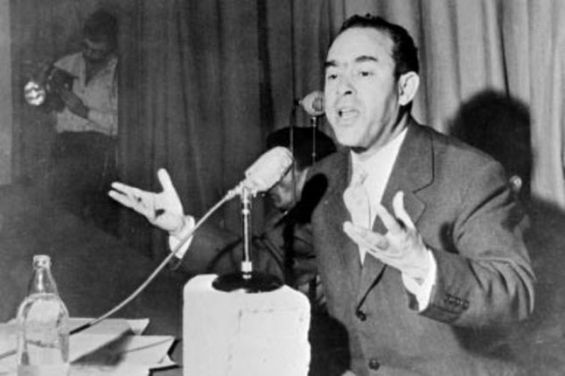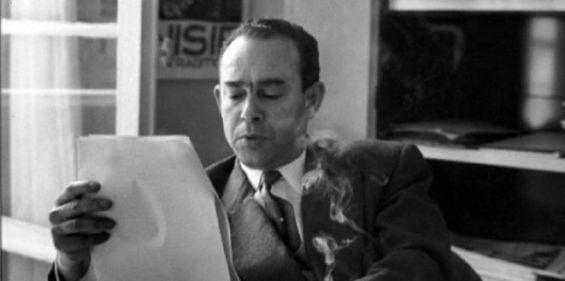Diplomatic ties between Israel and Africa were making headlines during the 1960s. Especially for Mehdi Ben Barka, a Moroccan politician, head of the left-wing National Union of Popular Forces (UNPF) and Secretary of the Tricontinental Conference, who was closely keeping an eye on the Israeli interest in Africa.
His comments, remarks and concerns were voiced during the «International Symposium on Palestine», held in Cairo from the 30th of March to the 6th of April 1965. Mehdi Ben Barka presented during the conference a report. The latter was seen as a warning to African leaders that have just gained independence, urging them to reject establishing bilateral ties with Tel Aviv.

The intervention of Ben Barka, who was regarded as a huge opponent of King Hassan II, was a way of galvanizing Arab leaders and making them realize the hidden agenda adopted by the Israelis. He admitted that the presence of Israel in Africa is a «fact» and called for developing a «scientific» approach to tackle the issue.
Reality vs. illusion
To support his hypothesis, he referred to David Ben Gurion, the primary founder of the «State of Israel» and the first Prime Minister of Israel, and Levi Eshkol, the third Prime Minister of Israel, who respectively served from November 1955 to June 1963 and from June 1963 to February 1969, to stress on the «vital» security approach adopted by the Hebrew state. He also quoted Golda Meir, the Israeli Foreign Minister in office back then.
«We are a new state that has faced and continues to face the same problem as them (Africans). We have gained a few original experiences in the field of economic development and as pioneers; all of this can benefit these states».
This strategy has been fruitful, acknowledges Ben Barka, to the point that some African leaders praised Tel Aviv for it. Malian Modibo Keita, the first president of Mali and the Prime Minister of the Mali Federation, and Julius Nyerere, a Tanzanian anti-colonist activist, were both impressed by Israeli’s ability to prosper in a short time. They even wanted to reach the same achievement in their countries, «by making Israel a pilgrimage for the African people».
Ben Barka vs. Imperialism
The Malian and Tanzanian leaders were not the only ones to share the same opinion about Israel. This was confirmed by Mehdi Ben Barka who made this clear before the Arab leaders present at the conference in Cairo. He reminded them of the African Unity summit in May 1963 held in Addis Ababa, Ethiopia.

This setback was, however, foreseeable, knowing that between 1958 and 1963 Israel had sent more 900 experts to 30 African countries to assist the development of these states after gaining their independence. Moreover, 3431 African students were admitted to several Israeli universities during the same period. The Jewish state had succeeded in showing support for Africa extending the list of its allies in the continent.
Ben Barka’s speech at the conference in Cairo explains why some believe that the Mossad are linked to his disappearance. Six months after the Cairo Palestine conference held in March 1965 and two months before the Tricontinental Conference in Havana, in January 1966, Mehdi Ben Barka was allegedly abducted in France by French police and never seen again.
The speech of the third-world leader was later published in the Moroccan newspaper «Al Massar» (1985-1988) created by Ahmed Benjelloun, a Moroccan left-wing politician.





 chargement...
chargement...












